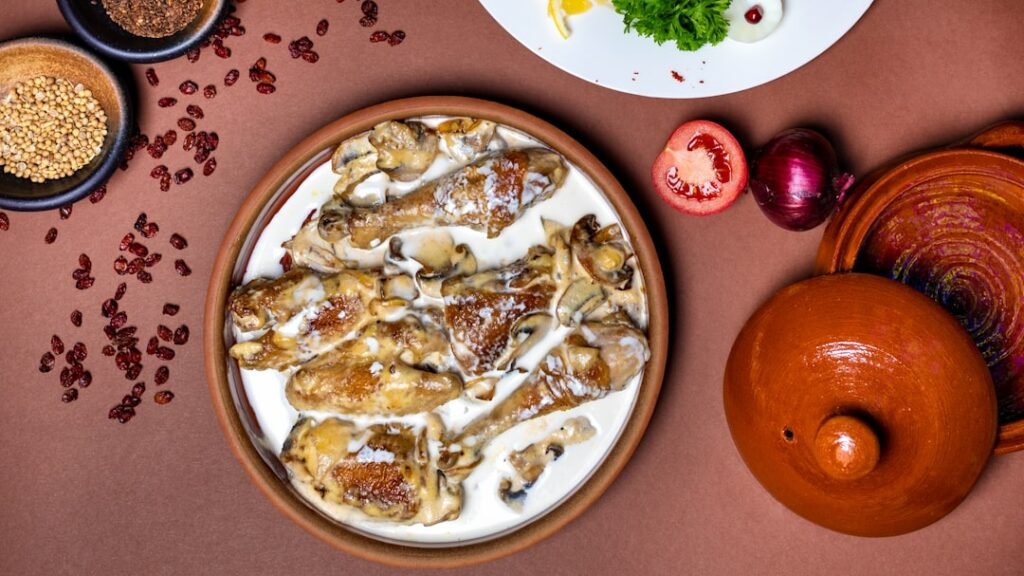Delicious BBQ Rubs and Marinades for Perfect Pork

When it comes to grilling and barbecuing, the right seasoning can make all the difference. I have always found that BBQ rubs and marinades are essential tools in my culinary arsenal, transforming ordinary cuts of meat into extraordinary dishes bursting with flavor. Rubs, typically a blend of dry spices and herbs, create a flavorful crust on the meat, while marinades, which are usually liquid-based, infuse the meat with moisture and taste.
Both methods serve to enhance the natural flavors of pork, making it a versatile choice for any barbecue enthusiast. The beauty of BBQ rubs and marinades lies in their adaptability. I can easily customize them to suit my personal taste or the preferences of my guests.
Whether I’m preparing for a casual backyard cookout or a more formal gathering, I find that experimenting with different combinations of spices and ingredients allows me to create unique flavor profiles that keep everyone coming back for more. In this article, I will delve into classic dry rub recipes, unique wet marinade ideas, tips for application, and much more, all aimed at elevating my pork dishes to new heights.
Classic Dry Rub Recipes for Pork
One of my go-to methods for seasoning pork is using a classic dry rub. The simplicity of a dry rub allows the natural flavors of the meat to shine through while adding an extra layer of complexity. A traditional pork rub often includes a combination of brown sugar, paprika, garlic powder, onion powder, salt, and black pepper.
The sweetness from the brown sugar caramelizes beautifully during cooking, creating a delightful crust that contrasts with the savory spices. Another favorite dry rub of mine incorporates a bit of heat. By adding cayenne pepper or chili powder to the mix, I can create a spicy kick that complements the richness of the pork.
I often experiment with different ratios to find the perfect balance between sweet and spicy. For instance, I might start with a base of two tablespoons of brown sugar and one tablespoon of cayenne pepper, adjusting as needed based on my mood or the preferences of my guests. The result is a flavorful blend that enhances the pork without overpowering it.
Unique Wet Marinade Ideas for Pork

While dry rubs are fantastic, I also love to explore the world of wet marinades. A well-crafted marinade can infuse pork with moisture and flavor, making it incredibly tender and juicy. One unique marinade I enjoy features soy sauce, honey, garlic, and ginger.
The umami from the soy sauce pairs beautifully with the sweetness of honey, while the garlic and ginger add depth and warmth. I typically let the pork marinate for at least an hour, but overnight is even better for maximum flavor absorption. Another intriguing marinade I’ve experimented with includes apple cider vinegar, mustard, and fresh herbs like rosemary and thyme.
The acidity from the vinegar helps to tenderize the meat while imparting a tangy flavor that cuts through the richness of pork. I find that this combination works particularly well with pork chops or tenderloin. By allowing the pork to soak in this vibrant mixture for several hours, I can achieve a dish that is both refreshing and satisfying.
Tips for Applying Rubs and Marinades to Pork
| Tip | Description |
|---|---|
| Use a dry rub | Coat the pork with a mixture of dry spices before cooking to add flavor and create a crust. |
| Apply marinade in advance | Allow the pork to marinate in a flavorful liquid for several hours or overnight to enhance its taste. |
| Massage the rub or marinade | Rub or massage the seasoning into the pork to ensure it is evenly coated and absorbed. |
| Adjust salt content | Be mindful of the salt content in the rub or marinade to avoid over-seasoning the pork. |
| Consider the cooking method | Choose a rub or marinade that complements the cooking method, such as grilling, roasting, or smoking. |
Applying rubs and marinades effectively is crucial to achieving the best flavor in my pork dishes. When using a dry rub, I always make sure to pat the meat dry with paper towels before applying the seasoning. This step helps the rub adhere better and ensures an even coating.
I typically use my hands to massage the rub into the meat thoroughly, making sure to cover all surfaces for maximum flavor penetration. For marinades, I prefer to use a resealable plastic bag or a shallow dish to allow for even distribution. After pouring in the marinade, I gently massage it into the meat to ensure every inch is coated.
I also make it a point to turn the meat occasionally while it’s marinating to promote even absorption of flavors. Timing is essential; while some cuts benefit from a quick soak of just 30 minutes, others may require several hours or even overnight for optimal results.
Flavorful Ingredients to Include in Pork Rubs
When crafting my own BBQ rubs, I love to incorporate a variety of flavorful ingredients that enhance the overall taste profile. Aside from the classic staples like salt and pepper, I often include smoked paprika for its rich, smoky flavor that adds depth without needing a smoker. Additionally, I find that herbs like thyme and oregano can bring an aromatic quality that elevates the dish.
I also enjoy experimenting with sweet elements such as brown sugar or maple sugar. These ingredients not only add sweetness but also contribute to caramelization during cooking, resulting in a beautiful crust. For those who enjoy a bit of heat, crushed red pepper flakes or ground mustard can provide an exciting kick that balances out sweeter components.
The key is to find harmony among these ingredients so that each bite offers a delightful explosion of flavors.
Experimenting with Different Pork Cuts and Rubs

One of the joys of cooking pork is its versatility across various cuts, each offering unique textures and flavors that pair beautifully with different rubs and marinades. For instance, when working with pork ribs, I often opt for a sweeter rub that complements their natural richness. A blend featuring brown sugar, garlic powder, and smoked paprika works wonders in creating a sticky glaze that caramelizes beautifully on the grill.
On the other hand, when preparing pork tenderloin—a leaner cut—I prefer using a marinade that includes citrus elements like orange juice or lime juice. The acidity helps tenderize the meat while adding brightness to each bite. I’ve found that this cut absorbs flavors exceptionally well, making it an ideal candidate for bold marinades that might overpower fattier cuts.
By experimenting with different combinations of cuts and seasonings, I can continually discover new favorites.
The method of cooking can significantly influence how I approach marinating pork. When grilling over high heat, I tend to favor marinades that are lighter and more acidic. These types of marinades help keep the meat moist while allowing it to cook quickly without becoming tough or dry.
A simple mixture of olive oil, vinegar, and fresh herbs works wonders when grilling pork chops or skewers. Conversely, when smoking pork—such as with shoulder or ribs—I often opt for richer marinades that can withstand longer cooking times without losing their flavor integrity. A marinade featuring apple cider vinegar combined with spices like cumin and coriander can penetrate deeply into the meat during slow cooking, resulting in an incredibly flavorful dish.
The low-and-slow method allows these flavors to meld beautifully over time, creating a tender and succulent final product.
Pairing Pork Rubs and Marinades with Side Dishes
No BBQ meal is complete without delicious side dishes that complement the main event. When serving pork seasoned with a sweet rub or marinade, I often gravitate toward sides that offer a refreshing contrast. For example, coleslaw made with tangy vinegar dressing pairs perfectly with sweet BBQ ribs, balancing out their richness while adding crunch.
On the other hand, when I prepare pork with bold spices or heat from a dry rub, I like to serve sides that are creamy or mild in flavor—think potato salad or cornbread—to provide a soothing counterpoint to the spiciness of the meat. Additionally, grilled vegetables drizzled with olive oil and lemon juice can add brightness and freshness to any pork dish while enhancing its overall appeal. In conclusion, mastering BBQ rubs and marinades opens up a world of culinary possibilities for anyone who enjoys cooking pork.
By exploring classic recipes alongside unique ideas and understanding how to apply them effectively, I can create mouthwatering dishes that leave lasting impressions on family and friends alike. Whether grilling or smoking, experimenting with different cuts and flavors allows me to continually refine my skills in the kitchen while enjoying every delicious bite along the way.





